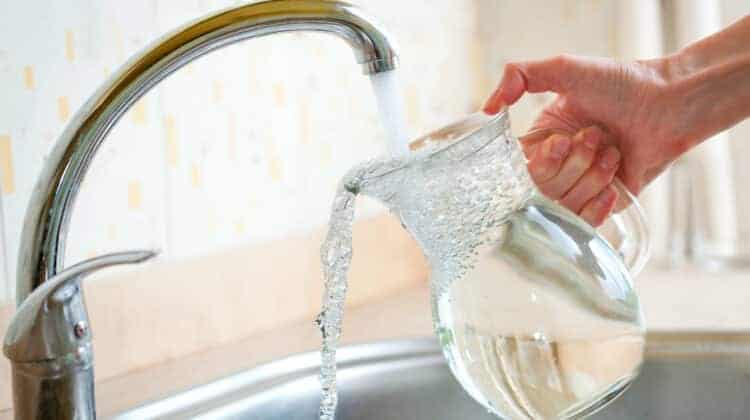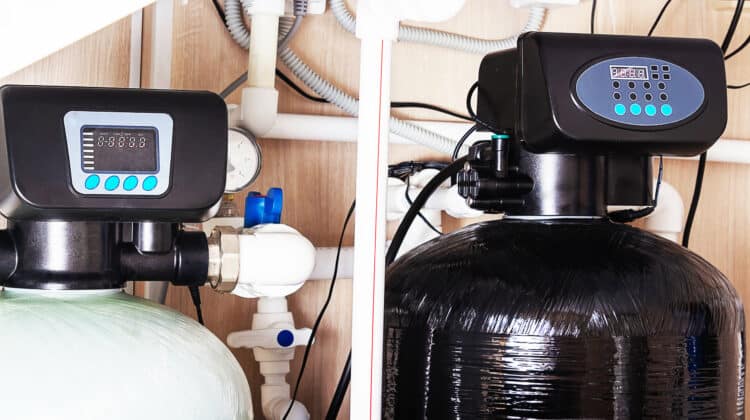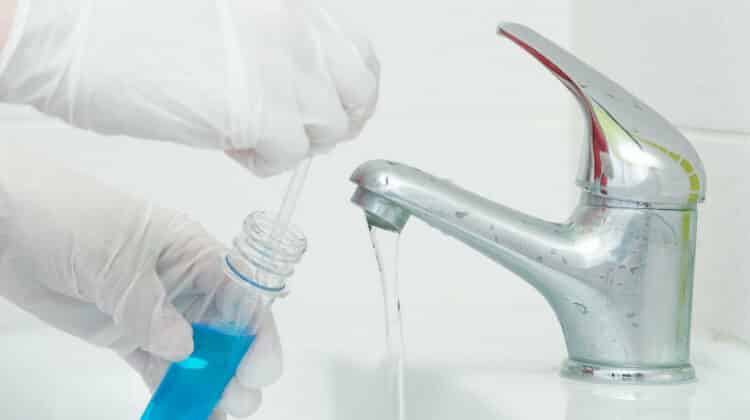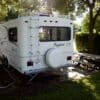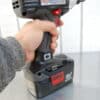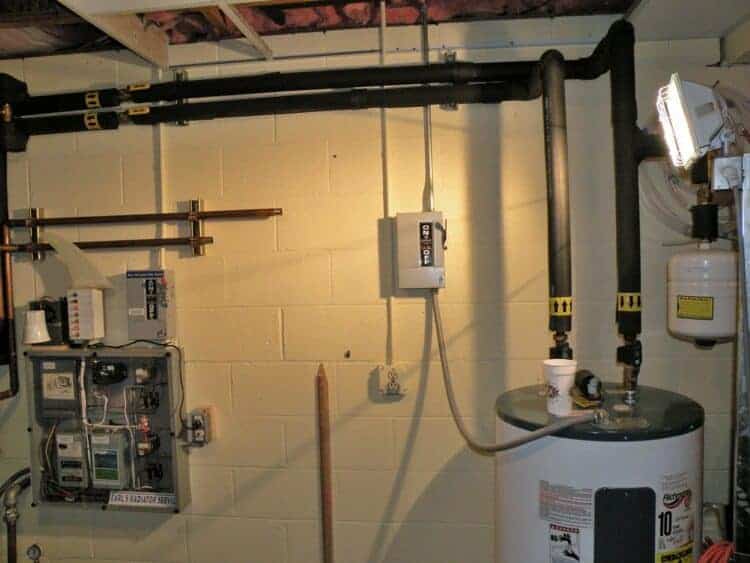
Many homeowners are asking this question: do I need a water softener? Almost 85% of water in the United States is hard water. So chances that you live in an area with hard water are very high. In that case, you might have a problem with hard water. But, the degree of hardness varies depending on where you live. So this is something that affects most homes. This article explores whether you need to buy a water softener.
There are many advantages of soft water over hard water. That is why you will need a water softener if you live in a hard water area.
Dealing with hard water can be costly. When hard water flows through your pipes, the minerals in the hard water can cause damages to your pipes. Even your home appliances and other fixtures can get damaged. The damage becomes more severe when the dissolved minerals combine with heat.
Table of Contents
How is hard water formed and what is the need for soft water?
When rainwater falls on the land surface, it is plain, pure, and free of minerals. At this point, it is soft water. The rainwater then flows through the ground. As it flows, it encounters minerals like magnesium and calcium. Where the rainwater does not encounter such minerals, it remains soft water. But, if it collects large amounts of calcium and magnesium, it becomes hard water. Although hard water is not harmful to your body when drank, it is harmful to your home.
The two main concerns associated with hard water are the formation of scale and curd when using soap. These remains are responsible for clogging your pipes. They can damage your appliances like dishwashers. They can also make clothes look dull and dingy.
Soap curd is a layer of scaliness caused by insoluble materials. The minerals form when the hardness materials in hard water react with soap. You will see the curds deposits on the side of the dishwasher or sink. The curds also make white fabrics look dull. Over time, the fabrics can become brown or yellowish. They also shorten the life of the clothes because they make them brittle.
When using hard water, you also realize that the curd formed dissolves the foam of the soap. So you end up using a lot of soap and detergent. It also makes cleaning more difficult.
When hard water heats, it tends to form scales. The build-up of scale ends up clogging drainage pipes and spoiling water heaters. In the end, you end up incurring more power costs because it reduces the efficiency of the appliances.
Remember, hard water doesn’t taste great either.
How does a water softener work?
A water softener works by removing the hardness from water. In simple terms, it dissolves magnesium and calcium deposits in water to make it soft. The process of removing the minerals responsible for water hardness is known as ion exchange. During the ion-exchange process, calcium and magnesium get trapped by resin beads. They are then exchanged for potassium and sodium ions.
Contrary to what many people imagine, a water softener is not some liquid. It is a system that converts calcium and magnesium ions into potassium and sodium ions. The most common water softener uses an ion exchange system. This softener contains four basic components.
- Resin tank- It contains the resin bed
- Brine tank- Contains the brine solution (salt solution) mixed with water. It is also known as the salt storage tank. The liquid is necessary to perform the ion exchange. li>
- Resin bed- The resin bed is composed of a material known as divinylbenzene (DVB) and styrene. It looks like beads and its work is to attract and hold charged ions. It then exchanges them with other positively charged ions of calcium and magnesium. This is where the real action takes place.
- Control valve- The work of the control valve is to determine which direction water will flow. During the ion exchange process, water can flow from one location to another . The direction of flow depends on the state of the process.
A water softener can recharge itself during the softening process. It will flush out excess ions from the system and replace them with new sodium ions. Be prepared to use about 25 gallons of water each day.
How do I know whether I need a water softener?
The first thing you need to know is whether your water is hard. If you live in an area with soft water, there is no need to buy a water softener. In some cases, the water might be mildly hard. In this case, there would be no compelling reasons to invest in a water softener. But the decision to buy a water softener will be entirely up to you in this case.
Have your water supply’s hardness level tested by experts. Let it get tested by an independent lab. If it is tested by a water softener selling company, you might end up with biased results. Meaning that even water with mild hardness will attract a sales pitch. Remember they are in business and will probably offer to test for free. You can also do a preliminary water hardness testing test (TIY).
You can also engage your local health department. They will recommend a reliable testing lab. It can cost you between $20 and $30.
The level of hardness varies greatly from place to place. It all depends on the nature of the rocks the underground water is flowing. Water hardness is measured in terms of the number of grains per gallon (GPG). This is the number of hard water suspended substances in 1 gallon of water.
Water hardness levels and what it means
- 0-3: It means the water is soft. It doesn’t require softening.
- 3-7: This is considered Moderately hard. You need a water softener if you have moderately hard water. Some people might decide to try home-based solutions such as vinegar. But these are cheap options in the short term and expensive in the long run.
- 7-11: This is considered hard water. You are likely to see faucets that look crusty. Your pipes may contain iron sediments, and water does not lather with soap. You need a water softener
- 11-15: This falls in the category of very hard water. Expect your pipes to be clogged with thick crusts. Your porcelain will look reddish, and your appliances will have pastes of lime. You require a water softener
- Over 15: Anything over 15 GPG is considered extremely hard. It is unlikely that you can do anything with this water unless you soften it. It causes severe damage to appliances, and clothes end up losing their color. Here you have to use a lot of soap and detergent with no visible results. A water softener is a necessity.
How to Test It Yourself
You can quickly determine whether your water is soft or hard. You don’t need fancy equipment to conduct this test. However, you won’t get specific numbers but you will know whether your water is hard or soft.
You will need three things: a transparent jar, a lid, and soap (most preferably detergent). Take tap water and pour it into the jar but do not fill it up. Next, take your detergent and sprinkle). Place the lid tightly and shake the content until you see lather.
If there is lather, then the water is soft or mildly hard. But if you see little or no lather, the water is hard. You can also dip your finger into the water. If it is hard water, your finger will come out with soap curd or deposits. The deposits float on the sides of the jar. If this is what you are seeing, you need a water softener.
What size of water softener do I need?
Once you have determined that you need a water softener, the next step is to know what size you need. The size you need depends on your household’s daily needs. An average person uses about 75 gallons of water per day. So multiply 75 by the number of persons in the house. It will give you an estimate of the amount of water you use at home.
For example, if you are 5, the average water consumption is 75*5 (375). So the total GPG hardness of your household would be 375 multiplied by your water hardness. Let’s take 20GPG because this is the most common hardness level in most places. You get a total of 7,000 GPG.
You determine the capacity of a water softener by the number of hardness grains it can remove. Most household water softeners can produce between 20,000 and 30,000 grains. Look for a softener whose regeneration capacity can last you for at least three days.
Consider our example of 7,000 grains of hardness. A softener that can meet your household needs would need to have a capacity of at least 21,000 grains. This is the size you will look for when making a buying decision.
If you are concerned about taking sodium in your body, you can use your water softener for other purposes. You can drink and cook with unsoftened hard water and use the softened water for other chores.
Are there water softener alternatives and do they work
Water softeners can cost anything between $500 and $3000, depending on the size and make of the system. Some people find this costly and might want to try some alternatives. The question is, do these alternatives work? Let us have a look at some of the alternatives around and whether they work.
One of the alternatives you will encounter is called a scale inhibitor. A scale inhibitor removes the curd buildup in the water pipes. Although it removes the scale buildup in pipes, it doesn’t soften the hard water. So your water will still not lather and your clothes will still change colors . There are also a host of other hard water disadvantages.
Another alternative is the reverse osmosis filtration system. Install reverse osmosis system under the kitchen sink. What it does is that it filters out the minerals in the hard water as it filters through the softener. Yet, the scales will still build up through the pipes and damage the system nonetheless.
As you can see, the alternatives to water softener are not reliable. They may be cheaper but still, they won’t do the work. You will still end up spending on replacing the pipes.
What are the factors that will determine the price of the softener?
The first determinant is the size of your household. The amount of water a softener can process in one regeneration is proportional to your home size. Bigger homes need bigger softeners.
The installation is also a factor to be considered. Does your home have adequate piping? This plays a big role in determining the overall cost of installing a water softener system. For example, older homes with outdated pipes need replacing/repair before installation.
Do you need additional features? For instance, if you desire to have a UV disinfection feature in your water softener, it is going to cost you more. Other costs of consideration include periodic servicing. Although some systems are automatic, others require manual recharging. You will need to replace brine (salt at least quarterly).
Conclusion
If you live in an area with hard water, then you need a water softener. Hard water can wreak havoc at home. Damaged pipes and reduced efficiency household appliances are the hazards of hard water. Also, dull clothes and itchy skin can be uncomfortable. Other costly effects include the use of more soap and experiencing dry and itchy skin. If your water is very hard or extremely hard, a water softener is almost indispensable. If your water is mildly hard, then it is a matter of personal preference on whether you will need a softener. Generally, a rating of 8 GPG will needa water softener.
